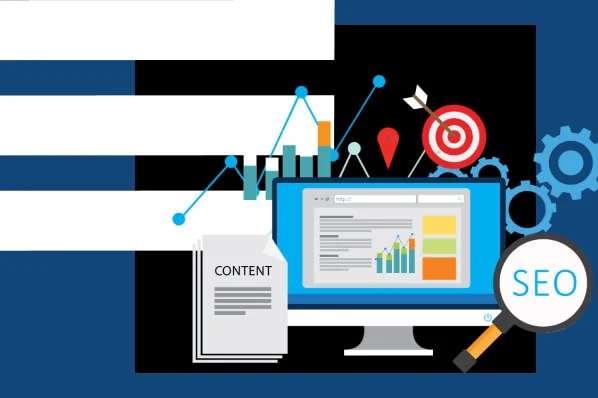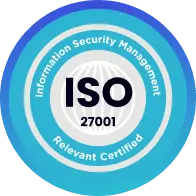Getting consumers’ attention in the midst of advertising noise has become increasingly challenging. According to communications group Granat, the average person is exposed to more than 400 ads a day, including social media, emails, pop-ups, website chats, online ads, mobile applications, TV and radio. But how much of this is actually remembered? To capture a customer’s attention, your offer must be relevant to their interests and presented at the right time. This is where digital marketing comes in.

Digital marketing is a comprehensive approach to promoting goods and services using digital technologies, targeting both online and offline audiences. It uses various digital channels such as the internet, television, radio, smart devices and applications, as well as text messaging. Whether it’s an ad within a mobile app, a blogger’s post with native advertising, a push notification or a radio/TV spot, digital marketing offers a wide range of tools to engage audiences.
Now let’s clarify the difference between digital marketing and internet marketing. While many people often confuse these terms, they are different concepts. Internet marketing focuses solely on promoting goods and services online, using tools such as email newsletters, social media marketing (SMM), search engine optimisation (SEO) and contextual/targeted advertising. You can read more about it here.
On the other hand, digital marketing is a broader approach that includes, but is not limited to, internet marketing tools. Digital marketing also includes tools that are not directly related to the internet. Essentially, digital marketing allows companies to bridge the gap between offline and online audiences.
Here are some examples of how digital marketing can be used:
- QR codes in magazines that can direct users to relevant websites or landing pages.
- Promo codes that users can redeem on a website, encouraging them to engage with your brand.
- Text messages with links that direct recipients to specific product pages, facilitating a seamless browsing and purchasing experience.
- Advertising integrated into games and applications, leveraging the vast reach of digital platforms to reach potential customers.

Ultimately, the primary goal of digital marketing is to increase sales. It aims to guide users towards a desired action, whether that is making a purchase, ordering a service or consuming content such as blog articles. Digital marketing also aims to retain customers, encourage repeat purchases and foster long-term relationships with audiences.
In short, digital marketing is a powerful approach to reaching customers in today’s digital landscape, encompassing a wide range of tools and strategies that go beyond just internet marketing.
By understanding the principles and techniques of digital marketing, businesses can effectively connect with their target audience and drive success in the digital realm.
Digital marketing helps companies achieve several key objectives, ultimately driving users to take targeted actions:
- Increase brand awareness: Building brand awareness is critical to staying top of mind with customers. Digital marketing helps create strong associations with a brand, ensuring that when individuals have a specific need for a product or service, they remember and differentiate a particular brand from others. By strategically designing online and offline brand experiences, companies can build strong brand identities that resonate with their target audiences.
- Attract traffic: Digital marketing enables companies to actively engage with customers and attract them to online platforms. This is achieved through various internet marketing tools such as email newsletters, search engine optimisation (SEO), social media marketing (SMM), targeted advertising and offline advertising such as SMS mailings, digital displays and interactive screens. By using these channels, businesses can drive meaningful traffic to their websites, social media profiles and other online touchpoints.
- Generate leads: Lead generation is an essential component of digital marketing, allowing companies to collect contact details of potential customers (leads) for future communication. These contact details, such as email addresses or phone numbers, allow companies to nurture leads, drive sales, increase brand loyalty and convert leads into loyal, repeat customers. Digital marketing uses a variety of lead generation tactics, including website chats, pop-ups, email campaigns, website forms, and contextual and targeted advertising.
- Qualify leads: Lead qualification involves identifying and separating high-quality, targeted leads from broader lead pools and passing them on to sales teams. This process ensures that sales efforts are focused on leads that are truly ready to buy, maximizing the effectiveness of marketing and sales activities. By qualifying leads, companies can streamline their sales pipeline and optimize resource allocation.
In addition, digital marketing offers a number of benefits for companies looking to deliver impactful messages to their target audience:
Reach both online and offline customers: Digital marketing allows brands to communicate with a wider audience, reaching people who are not necessarily active internet users. For example, innovative campaigns such as the one run by German advertising agency Jung Von Matt involved interactive experiences in cinemas, bridging the offline and online worlds. By combining unique codes distributed through flyers with interactivity in a horror trailer shown before the main film, the agency created an immersive and memorable experience for viewers, effectively capturing their attention and increasing brand recall.
Digital marketing plays a vital role in achieving business objectives, from increasing brand awareness and attracting website traffic to generating and qualifying leads. It offers the remarkable advantage of facilitating communication with both online and offline customers, enabling brands to create engaging and memorable experiences across a range of touchpoints.
Author
-

Saisha is an experienced SEO publisher with extensive experience in digital marketing. She received her education in the field of Marketing in University of Michigan, which laid a solid foundation for a successful career in online marketing.Over time, Sasha has expanded her experience working with clients in various sectors, from small businesses to large enterprises. She is not only a professional in the field of SEO publications, but also actively participates in the exchange of knowledge in the marketing community.
View all posts







